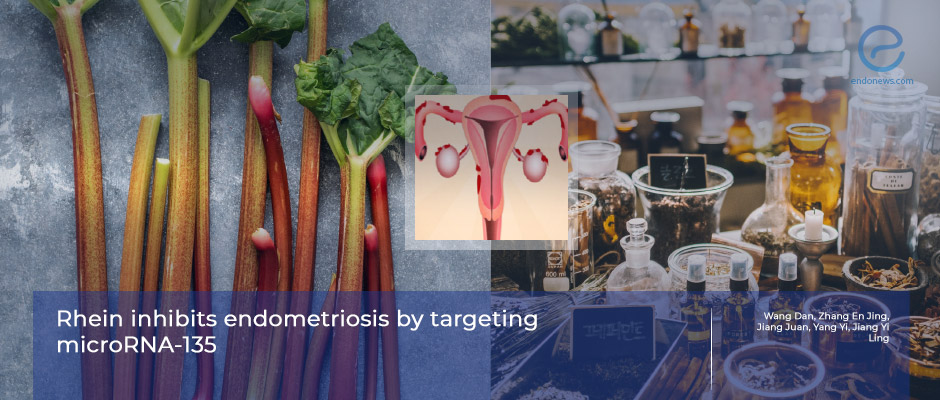Rhein usage in endometriosis: A potential new therapeutic agent
Nov 1, 2022
With its many useful properties, rhein emerges as a new agent in endometriosis treatment
Key Points
Highlight
- As an agent used in traditional Chinese herbal medicine, rhein might be a new potential therapeutic agent in endometriosis.
Importance
- Being a proliferative and invasive disease, endometriosis has many tumor-like properties.
- Inhibiting its growth at the molecular level might be a good approach to offering new treatment methods.
- Rhein has known anti-proliferative, anti-oxidant, and pro-apoptotic properties in many human cancers.
What’s done here
- The study aimed to discover the effects of rhein on human endometrial stromal cells (HESCs) concentrating on its possible effects on the microRNAs, especially on miR-135.
- The cell cultures of HESCs were obtained from the cell culture bank.
- The proliferation analysis was performed along with scratch-heal and transwell chamber assays.
- Quantitative RT-PCR was used for the miR and mRNA expression analysis.
Key results
- Rhein administration significantly decreased the proliferation of HESCs.
- The longer the duration of rhein administration was, the lower the proliferation rate was.
- The migration and invasive effects of HESCs were also found to be decreased after rhein administration.
- Rhein inhibited HESC growth by suppressing miR-135 at the molecular level.
Lay Summary
The invasive nature of endometriosis has prompted scientists to find preventative and curative methods. The progression and proliferation of endometriotic lesions are being studied extensively. As one of the agents used in Chinese herbal medicine for inflammatory disorders, rhein is an anthraquinone derivative found in the rhubarb root. It is known to have anti-proliferative, anti-oxidant, and pro-apoptotic effects and it has been shown to regulate its functions by targeting microRNAs (miRs) or long non-coding RNAs.
The study performed by Dan et al. from Wuhan, China aimed to evaluate the effects of rhein on endometrial stromal cells, especially focusing on the miRs (in particular miR-135) that were reported to have an important link in the molecular pathways of endometriosis progression. The article was published in the August 2022 issue of the journal Acta Biochimica Polonica.
After obtaining the cell cultures of human endometrial stromal cells (HESCs), the proliferation analysis was performed along with scratch-heal and transwell chamber assays to further analyze the migratory and invasive properties of the cells. Quantitative RT-PCR was used for the miR and mRNA expression analysis.
The administration of rhein on the HESCs revealed that the proliferation of HESCs was inhibited by rhein. It was seen that HESC proliferation and clonogenicity decreased with increasing rates of rhein and a significant decline in the proliferation rate was seen as the treatment duration was prolonged. The authors stated that this effect may be ascribed to the pro-apoptotic property of rhein and its role in mitotic arrest. What is more, significantly lower (more than 50 percent) migration and invasion rates were detected in vitro after rhein administration. It was discussed that this property was associated with the inhibition of the upregulation of the MMP2 and MMP9 genes.
The evaluation of HESC growth in terms of miR-135 expression was done by comparing control and rhein-treated HESCs and suppression of miR-135 was detected with rhein administration revealing a pathway of growth inhibition by rhein on HESCs via targeting miR-135.
All of these results indicate the possibility of rhein being used as a potential therapeutic agent in endometriosis and it is concluded that more in vivo studies are needed in this aspect.
Research Source: https://pubmed.ncbi.nlm.nih.gov/36044630/
endometriosis rhein therapeutic microRNA miR-135

